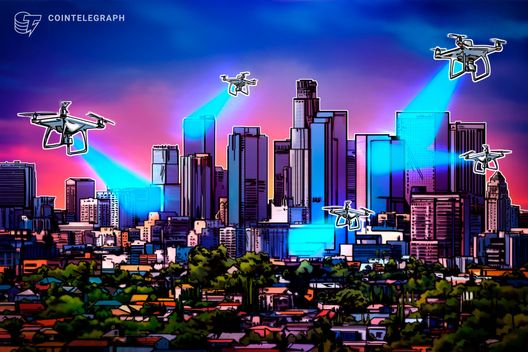

World Mobile is embarking on an ambitious project to revolutionize telecommunications using drone-based, decentralized networks. This innovative approach aims to bridge the connectivity gaps left by traditional infrastructure, particularly in underserved communities across the globe.
The core of the project involves deploying hydrogen-powered drones that will operate in the stratosphere at an altitude of 60,000 feet. These drones will function as aerial base stations, beaming wireless connectivity directly to users below. Each drone is designed to cover an area of up to 15,000 square kilometers, utilizing 450 guidable beams to deliver targeted service.
According to Charles Barnett, the chief business officer of World Mobile Group, this aerial network boasts impressive performance capabilities. It can achieve a total latency of just 6 milliseconds, significantly outperforming satellite-based telecommunications. Furthermore, the cost per gigabyte of data is projected to be up to 18 times cheaper than that of space-based infrastructure.
World Mobile's initiative comes at a time when the sky-based communication sector, encompassing both satellite and aerial platforms, is experiencing substantial growth. The market is currently valued at $98.3 billion, with the internet satellite communications segment expected to reach $159 billion by 2030. By entering this burgeoning market, World Mobile aims to capture a significant share and establish itself as a key player in the future of telecommunications.
Beyond the drone-based network, World Mobile has already established a ground-based, decentralized wireless network. This existing network combines traditional telecom infrastructure with independent, distributed network providers. The goal is to create an alternative to legacy telecommunication systems, extending services to underserved areas and eliminating dead zones.
The drone-based project is being launched in partnership with Protelindo, an Indonesian telecom company. This collaboration will provide World Mobile with the necessary resources and expertise to deploy and operate its aerial network effectively. The partnership with Protelindo highlights the importance of collaboration in bringing innovative telecommunications solutions to fruition.
This project reflects a broader trend towards decentralization in various industries, including telecommunications. By leveraging blockchain technology and distributed networks, World Mobile seeks to create a more resilient, accessible, and affordable communication infrastructure. This approach has the potential to empower communities, foster economic growth, and improve access to essential services. The use of hydrogen power also underscores a commitment to sustainable and environmentally friendly technologies. As the world becomes increasingly reliant on connectivity, innovative solutions like World Mobile's drone-based network will play a crucial role in bridging the digital divide and ensuring that everyone has access to the benefits of modern telecommunications.